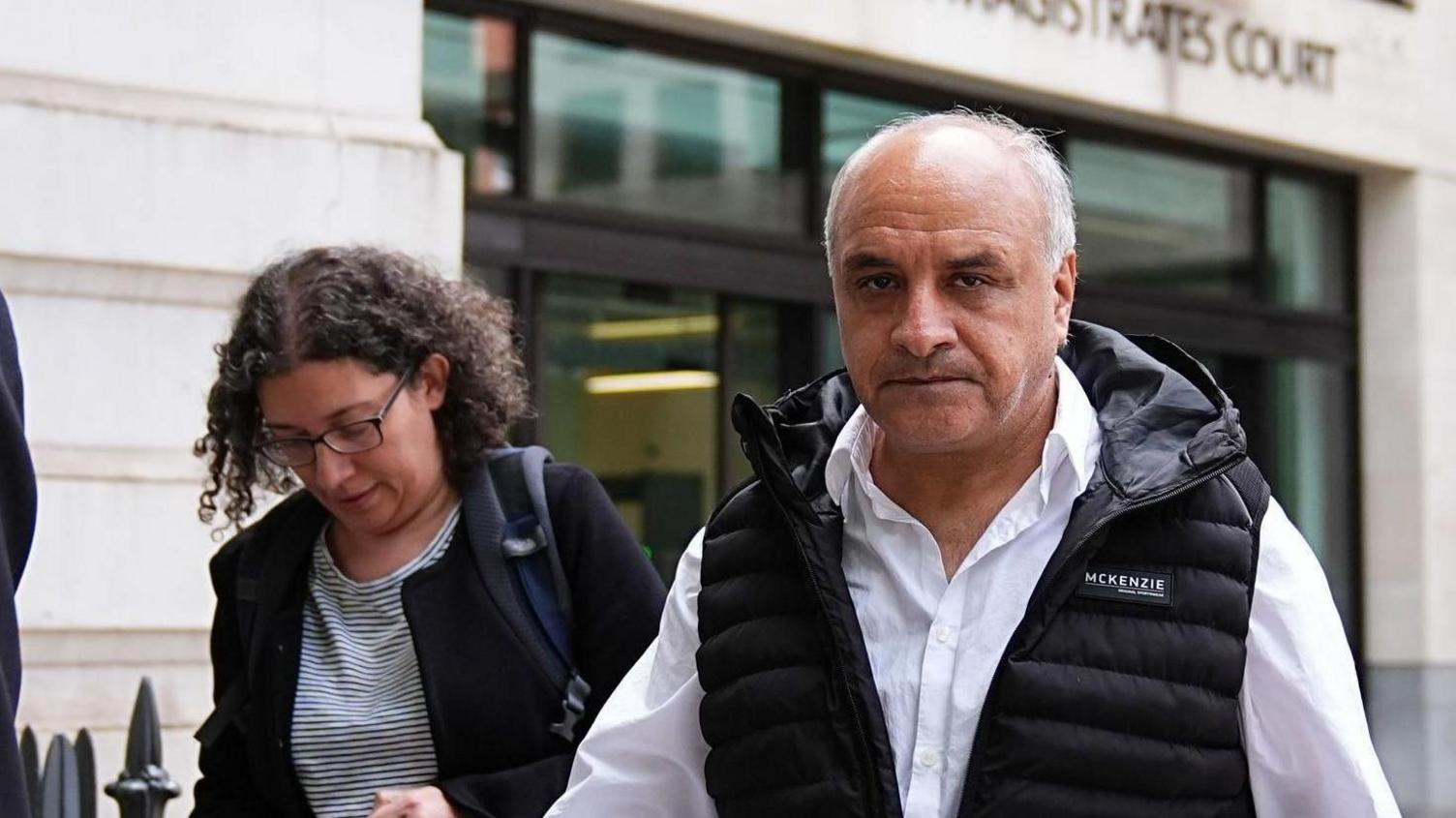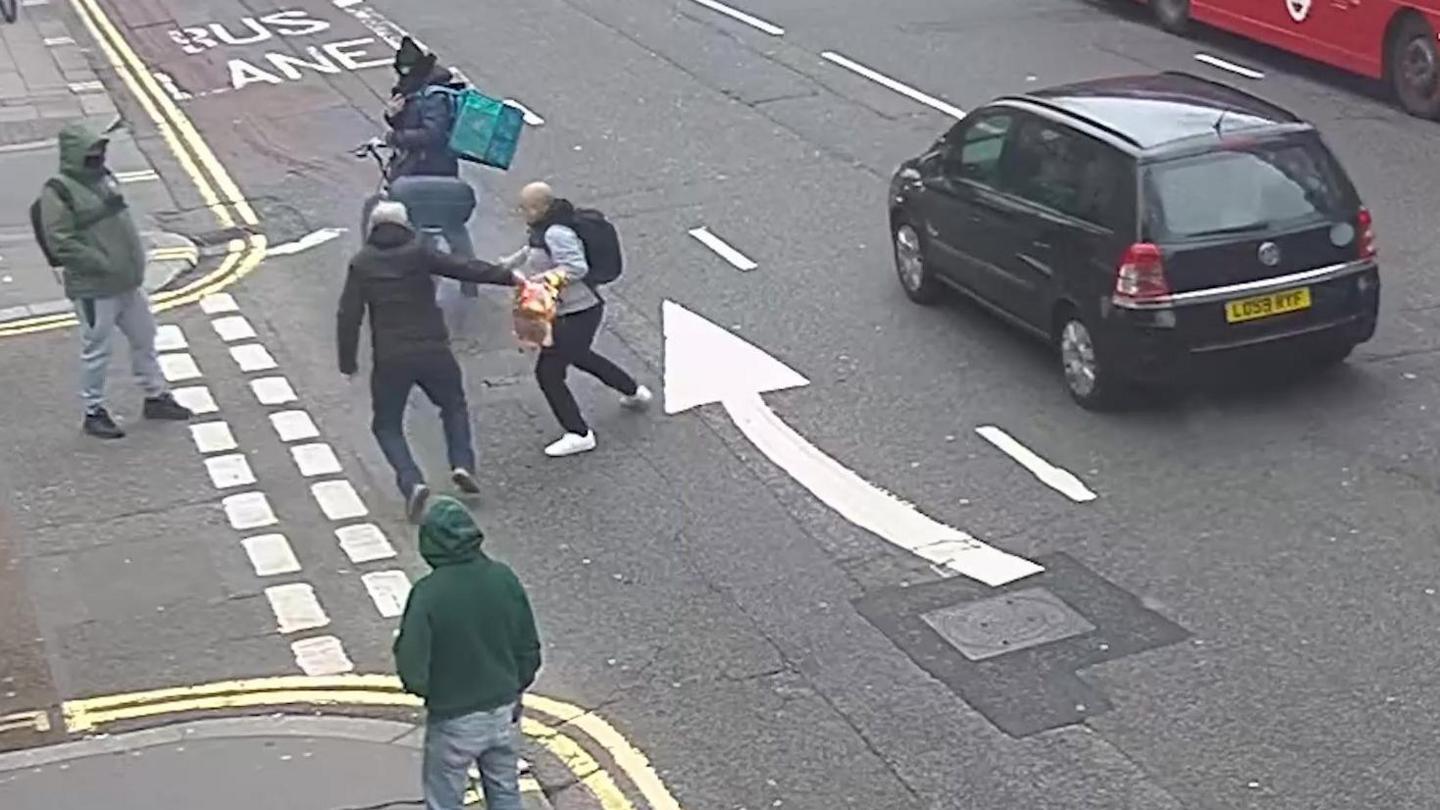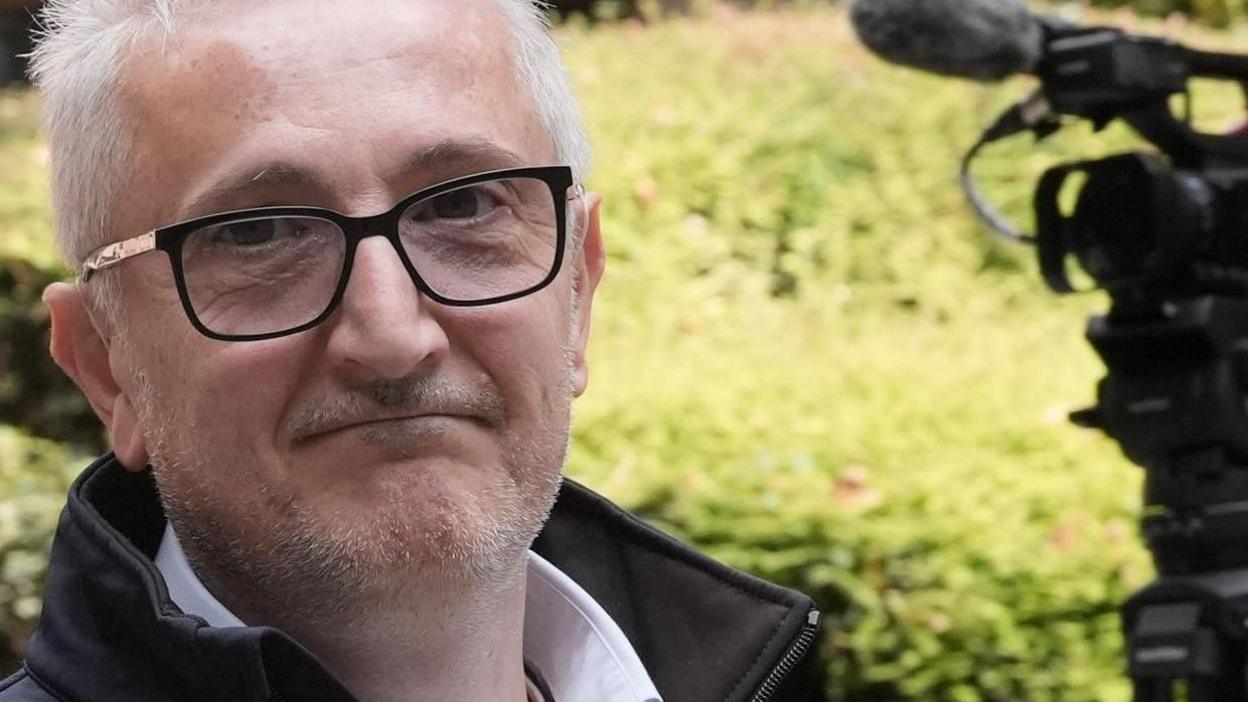Man who burned Quran wins free speech appeal

Hamit Coskun was convicted at Westminster Magistrates' Court in June
- Published
A man who was fined for burning a copy of the Quran outside the Turkish consulate in London has won his appeal against his conviction.
Hamit Coskun, 51, shouted abusive comments about Islam as he held the flaming book aloft in Rutland Gardens, Knightsbridge, on 13 February.
In June, he was found guilty at Westminster Magistrates' Court of a religiously aggravated public order offence and fined £240.
At Southwark Crown Court on Friday, Mr Justice Bennathan said that while burning a Quran might be something "many Muslims find desperately upsetting and offensive", the right to freedom of expression "must include the right to express views that offend, shock or disturb".
Knife attack
The judge added: "We live in a liberal democracy. One of the precious rights that affords us is to express our own views and read, hear and consider ideas without the state intervening to stop us doing so.
"The price we pay for that is having to allow others to exercise the same rights, even if that upsets, offends or shocks us."
Turkish-born Mr Coskun said he had come to England "to be able to speak freely about the dangers of radical Islam" and was now "reassured that - despite many troubling developments - I will now be free to educate the British public about my beliefs".
During Mr Coskun's Quran-burning protest, a man emerged from a nearby building and slashed at him with a large knife, later telling police he was protecting his religion. The attacker, Moussa Kadri, 59, was given a suspended jail sentence last month.
Mr Coskun's appeal hearing was attended by shadow justice secretary Robert Jenrick who said that while he did not agree with what Mr Coskun had done, he did not believe it was a crime.
Campaigners argued that Mr Coskun's conviction was akin to blasphemy laws being reintroduced "by the back door, inadvertently, by our court service".
Blasphemy laws were abolished in England and Wales in 2008 and in Scotland in 2021.

CCTV captured Moussa Kadri (in the black jacket) attacking Mr Coskun outside the Turkish consulate
In June, Mr Coskin was convicted at Westminster Magistrates' Court of a religiously aggravated public order offence of using disorderly behaviour "within the hearing or sight of a person likely to be caused harassment, alarm or distress", motivated by "hostility towards members of a religious group, namely followers of Islam", contrary to the Crime and Disorder Act 1998 and section five of the Public Order Act 1986.
Convicting him, District Judge John McGarva said Mr Coskun's conduct had been "provocative and taunting" and told him "you have a deep-seated hatred of Islam and its followers".
The Free Speech Union said that the overturning of the conviction sent a message that "anti-religious protests, however offensive to true believers, must be tolerated".

Kadri was protecting his religion when he went out on to the street brandishing a knife, he told police
Lord Young of Acton, director of the union, which helped fund Mr Coskun's legal case, said: "We're delighted.
"Had the verdict been allowed to stand, it would have sent a message to religious fundamentalists up and down the country that all they need to do to enforce their blasphemy codes is to violently attack the blasphemer, thereby making him or her guilty of having caused public disorder.
"Instead, the crown court has sent the opposite message - that anti-religious protests, however offensive to true believers, must be tolerated."
The National Secular Society said the judgment was "an important victory for freedom of expression", describing Mr Coskun's protest as a "lawful act of political dissent".
Man appeals Quran burning with 'free speech'
- Published9 October
Attacker of Quran-burning protester is spared jail
- Published23 September
Man fined for 'provocative' Quran burning
- Published2 June
Listen to the best of BBC Radio London on Sounds and follow BBC London on Facebook, external, X, external and Instagram, external. Send your story ideas to hello.bbclondon@bbc.co.uk, external